HANOI We sat drinking tea under the shade of the mulberry trees, listening to the chirping of the woodpeckers as they searched for food in the gaps between the leaves.
HANOI We sat drinking tea under the shade of the mulberry trees, listening to the chirping of the woodpeckers as they searched for food in the gaps between the leaves.
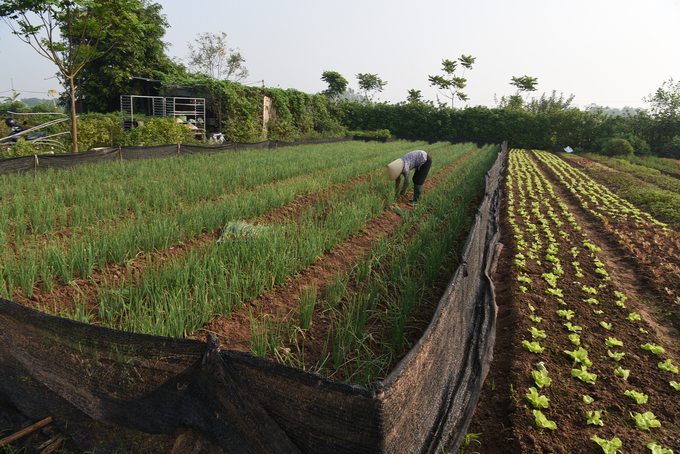
A corner of the Green Gen group's farm. Photo: Duong Dinh Tuong.
The four scientists have three masters and one doctorate, of which Nguyen Duc Chinh is the initiator. Chinh said that after graduating from the University of Agriculture in 2005, he worked for the Plant Resources Center under the Vietnam Academy of Agricultural Sciences. During his work, he was sent to study high-tech agriculture in Israel, then to Australia to study a master's degree in applied science in agriculture, and finally to study a doctorate in biotechnology in Japan.
The story of farming came to him by chance. The Plant Resources Center had a project to build an organic vegetable model and he not only participated but also took on the role of delivery man and noticed that out of 10 people who bought organic vegetables, about 7-8 were pregnant women or women with young children.
One time he delivered goods to a female worker in Thang Long Industrial Park ( Hanoi ), living in a very makeshift rented house with a corrugated iron roof. In that condition, she still tried to find organic vegetables to eat because she was pregnant. When he gave the bill to the pregnant woman, he suddenly saw her startled, as if shocked by the price because it was the first time she bought organic vegetables, and the way she went to find money to pay haunted him forever.
Safe vegetables in general and organic vegetables in particular are essential but many people find it difficult to access because the price is much higher than regular vegetables. That is what inspired him to create something valuable for society.
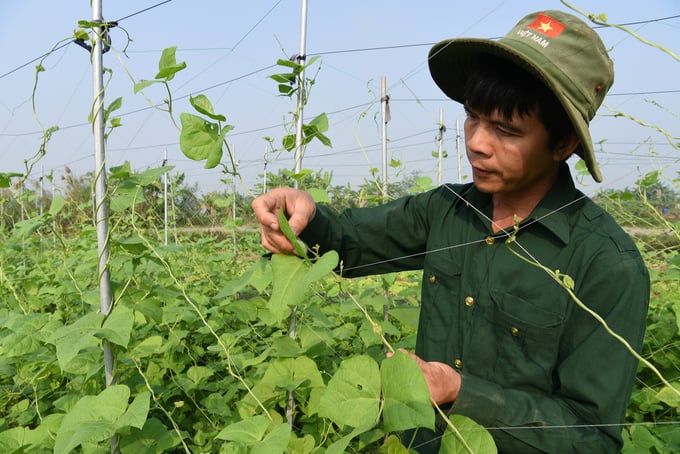
Mr. Nguyen Duc Chinh checks a bean rack. Photo: Duong Dinh Tuong.
The Green Gen Group was established in 2014 with the desire to produce green agricultural products to serve the green consumer generation. While the work was still unfinished, Mr. Chinh went to study in Japan. Although he studied biotechnology, his mind always thought of organic vegetables and the Green Gen Group in his hometown.
Normally, when the project ends, people also destroy the new farming method to return to the original farming method because at that time, firstly, there were not enough tools for them to be able to produce organic agriculture in the "5 no" style: No chemical pesticides; no chemical fertilizers; no herbicides; no growth stimulants or regulators; no use of genetically modified seeds. Second, it was very difficult to sell the products. The organic vegetable production model transferred to the people failed, however, the Gen Xanh group still tried to maintain production on a small scale.
During his studies in Japan, Mr. Chinh read the book "The One Straw Revolution" by Masanobu Fukuoka (1913 - 2008) and was very impressed with the idea that organic vegetables could be produced on a large scale and at a low cost.
When he returned to Vietnam, he discussed with his wife, Ms. Nguyen Thi Duyen - a master of agriculture in Australia, and a group of other masters colleagues such as Nguyen Thi Thanh and Tran Van Luyen to find land to open a model. In 2020, they spent money together to rent 1.5 hectares of wasteland covered with cogon grass along the Day River in Hiep Thuan commune (Phuc Tho district, Hanoi) and then recently another 2 hectares to develop a natural farming model.
To focus on growing organic vegetables, Ms. Duyen quit her government job first, then Mr. Chinh, Ms. Thanh, and Mr. Luyen. At first, the land was not yet fertile, the techniques were not yet proficient, the workers were not used to the work, and the customers did not know about it, so it was not until the sixth month that she had enough money to pay the wages. Gradually, the production process was perfected, and the economic efficiency improved day by day.
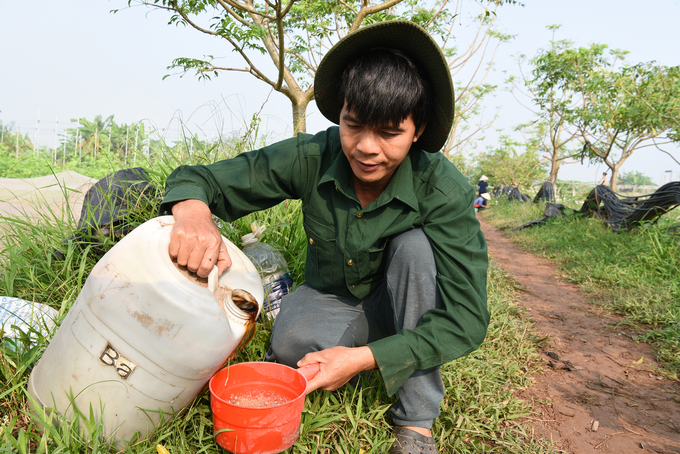
Mr. Nguyen Duc Chinh pours compost from discarded eggs to fertilize vegetables. Photo: Duong Dinh Tuong.
The first principle of organic production is to take pest prevention as the main focus. The group applies ecological principles to limit pests from the beginning. The first is soil improvement. When the soil is healthy, plants grow quickly and healthily. The second is to diversify crops.
In the modest area of the farm, there are hundreds of different plant species. A pest species usually only damages certain types of plants, so diversifying crops helps limit the outbreak of pests and diseases. Third, planting in the season. Finally, using natural enemies.
At first, the bean growing group often had aphids, so they used ginger, garlic, and chili soaked in water to spray, but it was a hassle and ineffective, so they just left it there. One day, when they went out to the garden, they saw many ladybugs eating aphids. They were so happy that from then on, the group decided not to spray ginger, garlic, and chili anymore because it would harm the natural enemies. When the pest density was too high, they felt there was no hope, so they destroyed that vegetable bed. Natural enemies appeared more and more, from ladybugs to woodpeckers, frogs, and toads. When the plants were still small and had low resistance, the group used nets to cover them, then let them grow naturally.
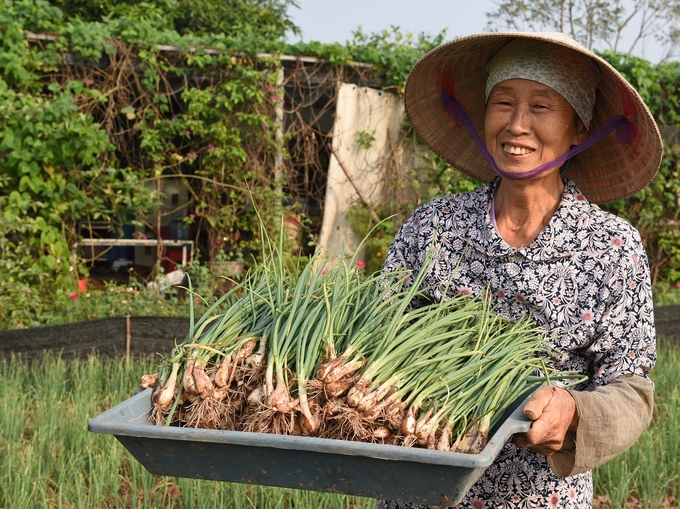
Harvesting onions at Gen Xanh farm. Photo: Duong Dinh Tuong.
In the soil there is a system of microorganisms that form a food chain starting from bacteria to fungi, nematodes, and earthworms. The small ones may not be visible, but earthworms not only make the soil loose but also serve as an indicator of good or bad soil quality.
When the food chain in the soil is balanced, plants will grow well and be less susceptible to disease. Therefore, when first reclaiming land, Gen Xanh improves the soil by planting legumes, and after plowing, they make fixed ridges. In those fixed ridges, they do not plow deeply but only plow shallowly because the soil ecosystem exists most at 0 - 20cm, so they only plow at 8 - 10cm. That plowing method also helps protect earthworms. Secondly, they do not use chemicals because bacteria are at the top of the soil food chain but are single-celled animals, very vulnerable to chemicals.
Mr. Chinh dug down into the strawberry bed, scooped up a handful of soil and spread it on his hand. It was covered with worm castings, very loose but not separate from each other because of the soil colloidal particles formed by the mushroom fibers. When the soil is loose, it retains water and fertilizer, and the plants grow well. (To be continued)
Source: https://nongsanviet.nongnghiep.vn/4-nha-khoa-hoc-bo-viec-nha-nuoc-lam-nong-kieu-cach-mang-mot-cong-rom-d408236.html


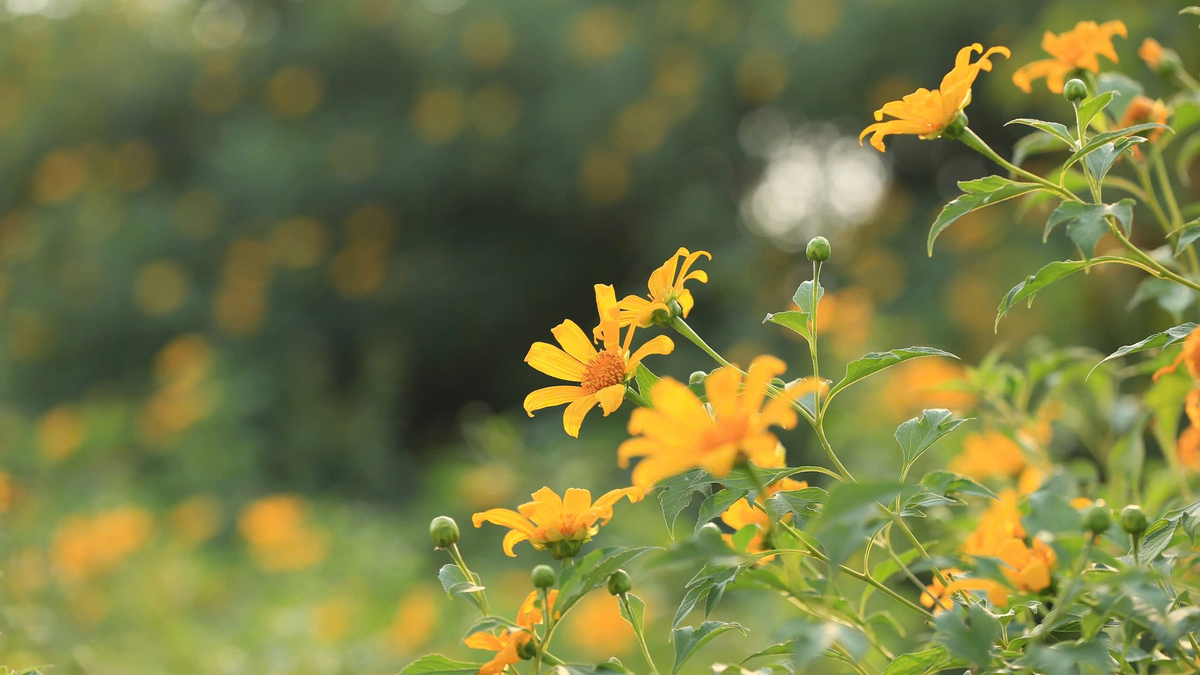
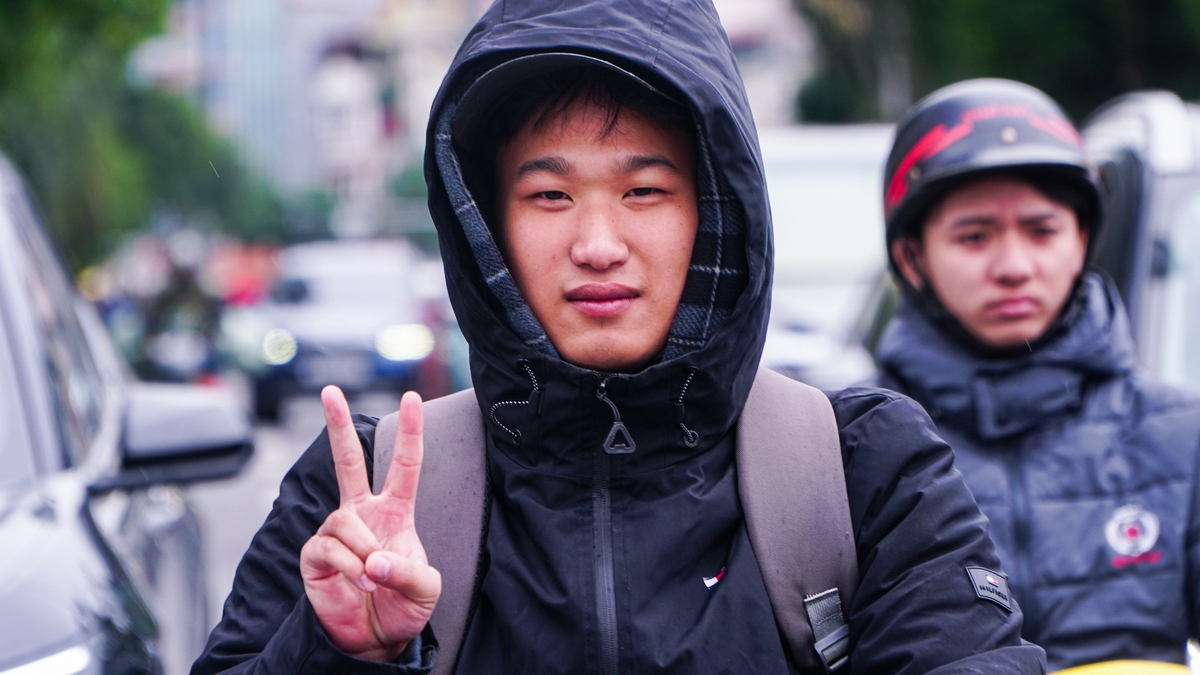
![[Photo] The Standing Committee of the Organizing Subcommittee serving the 14th National Party Congress meets on information and propaganda work for the Congress.](https://vphoto.vietnam.vn/thumb/1200x675/vietnam/resource/IMAGE/2025/11/19/1763531906775_tieu-ban-phuc-vu-dh-19-11-9302-614-jpg.webp)
![[Photo] Prime Minister Pham Minh Chinh and his wife meet the Vietnamese community in Algeria](https://vphoto.vietnam.vn/thumb/1200x675/vietnam/resource/IMAGE/2025/11/19/1763510299099_1763510015166-jpg.webp)




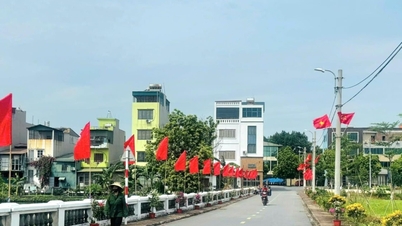



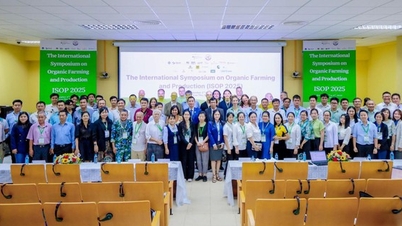











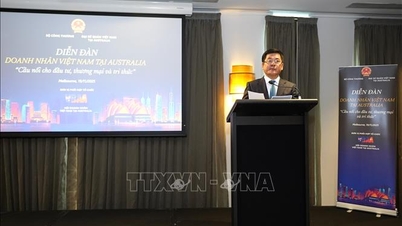
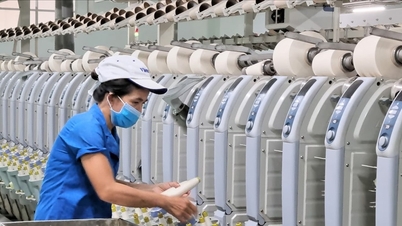





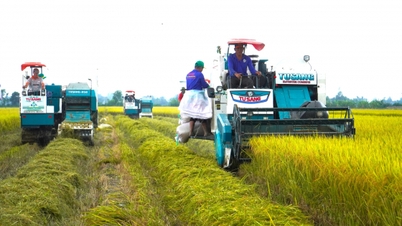
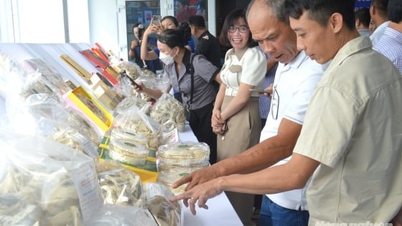

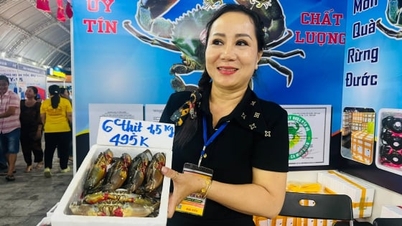
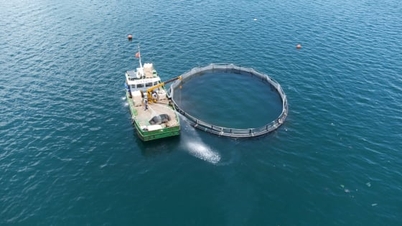
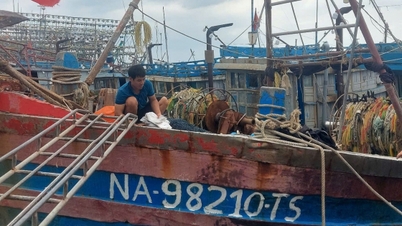
![[Photo] General Secretary To Lam receives Slovakian Deputy Prime Minister and Minister of Defense Robert Kalinak](https://vphoto.vietnam.vn/thumb/1200x675/vietnam/resource/IMAGE/2025/11/18/1763467091441_a1-bnd-8261-6981-jpg.webp)
![[Photo] General Secretary To Lam receives CEO of AP Moller-Maersk Group, Denmark](https://vphoto.vietnam.vn/thumb/1200x675/vietnam/resource/IMAGE/2025/11/18/1763462288958_a3-bnd-8222-2510-jpg.webp)








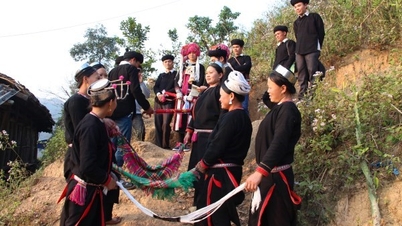



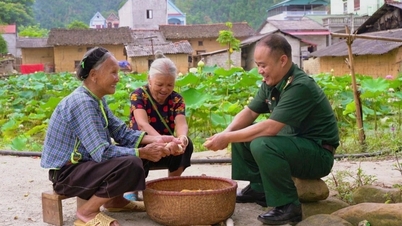





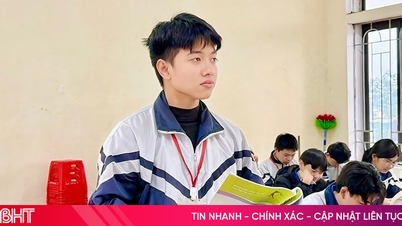

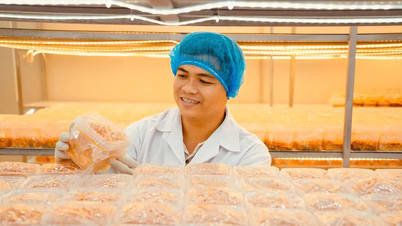
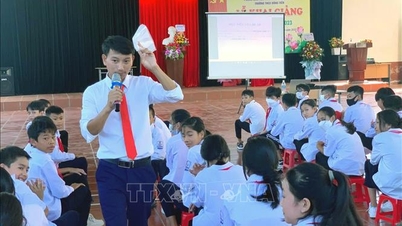
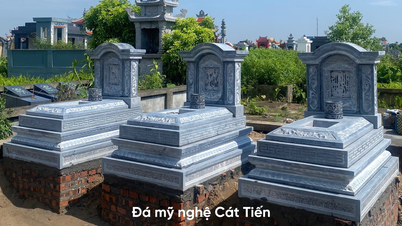



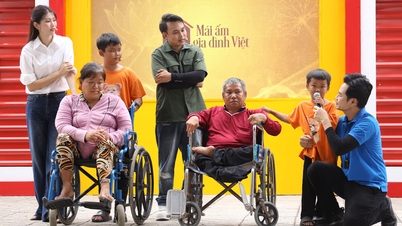

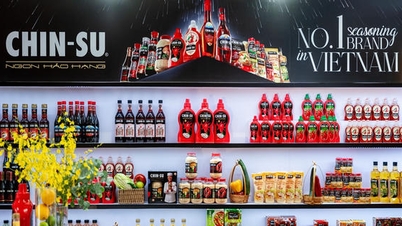












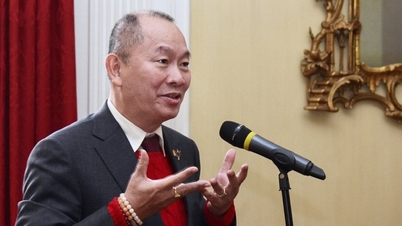
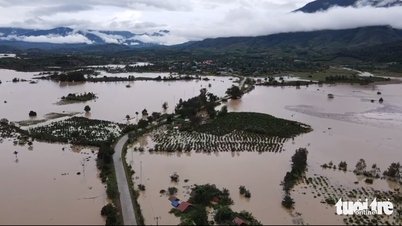
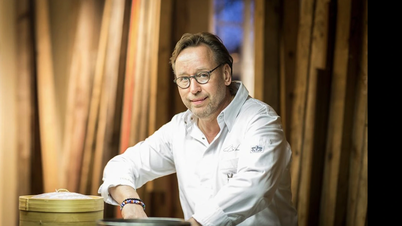

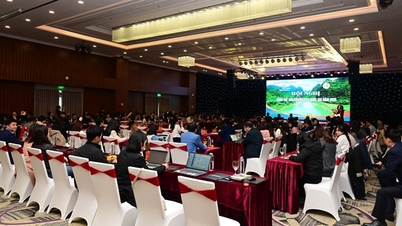

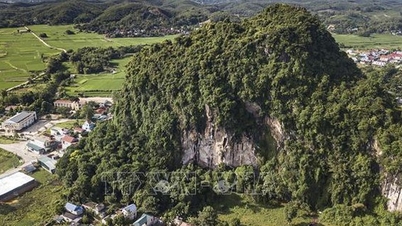









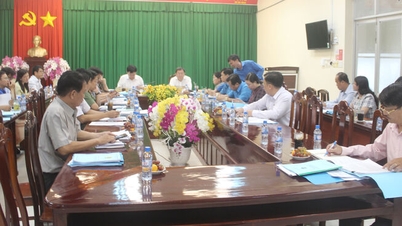
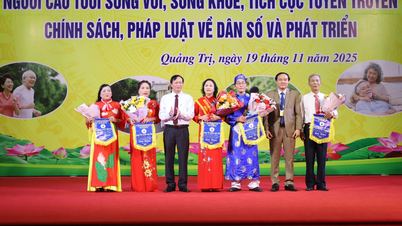

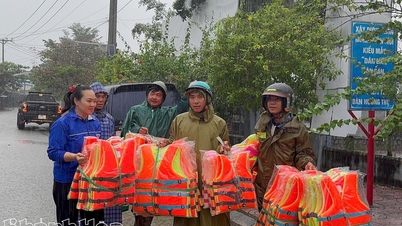
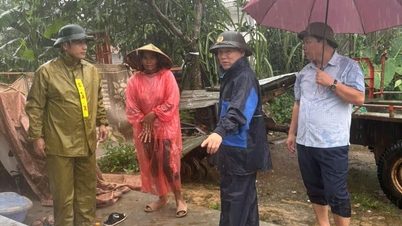











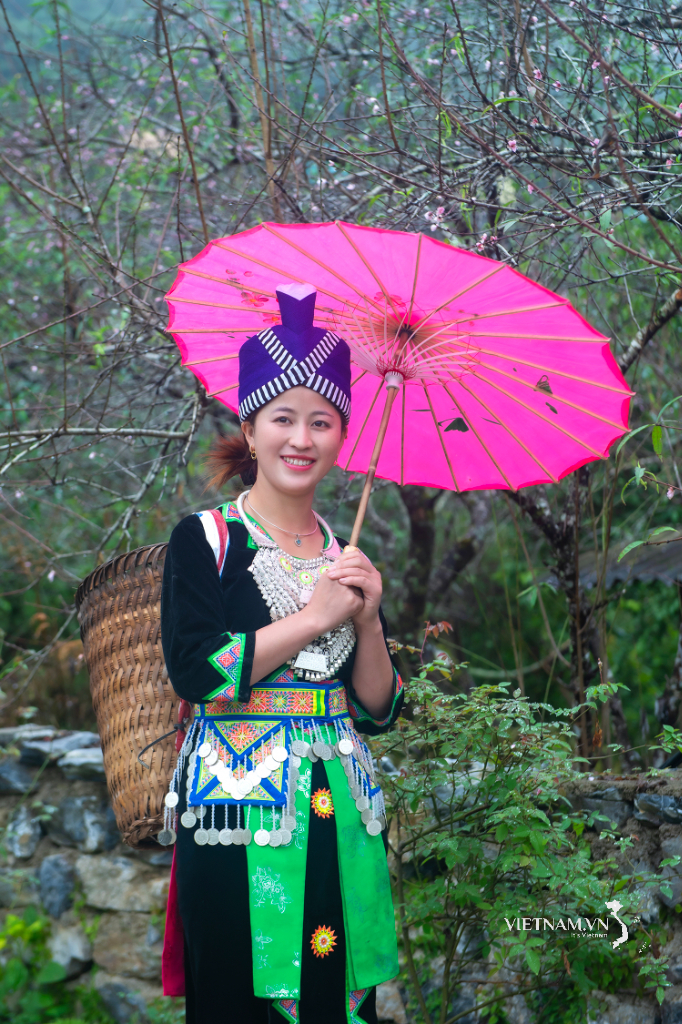
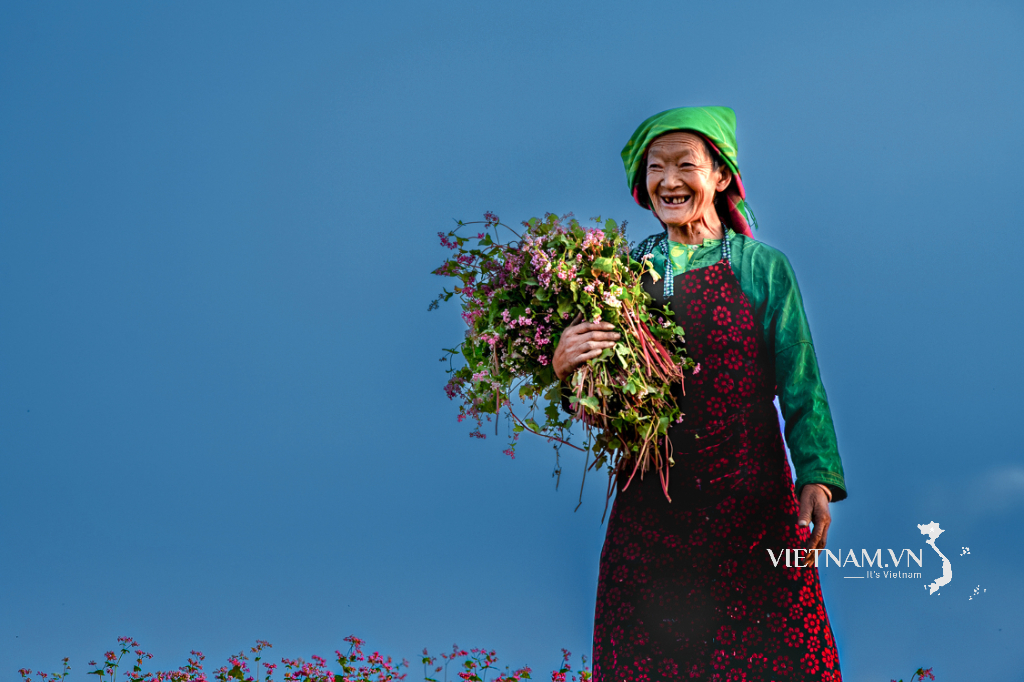

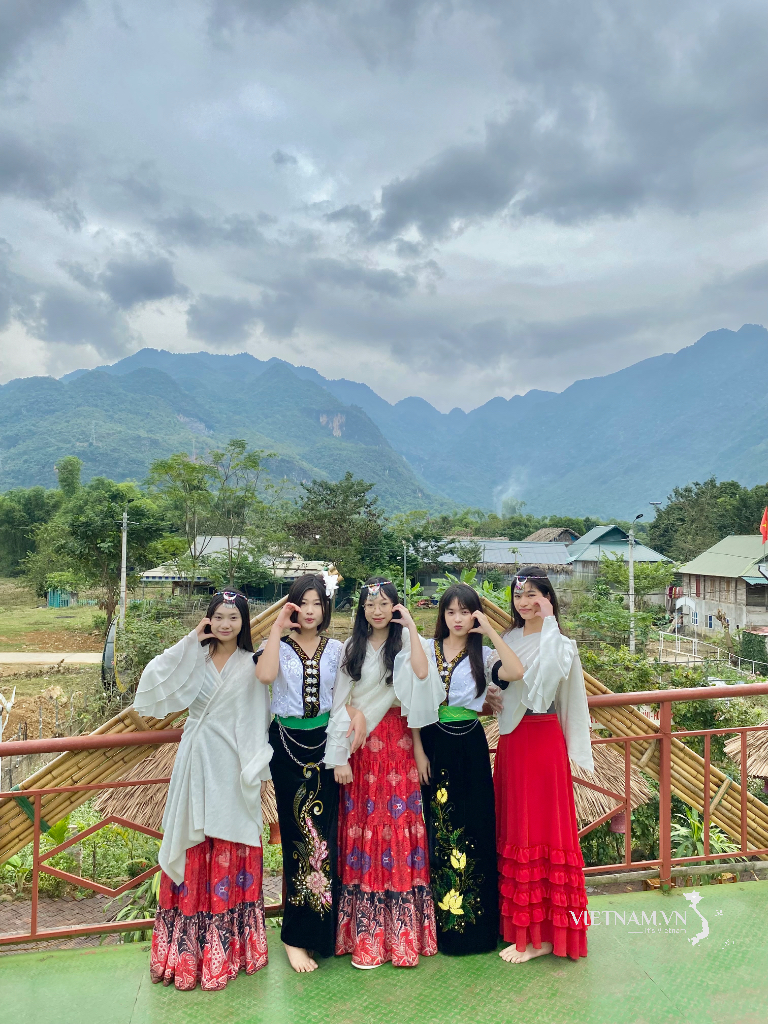
Comment (0)